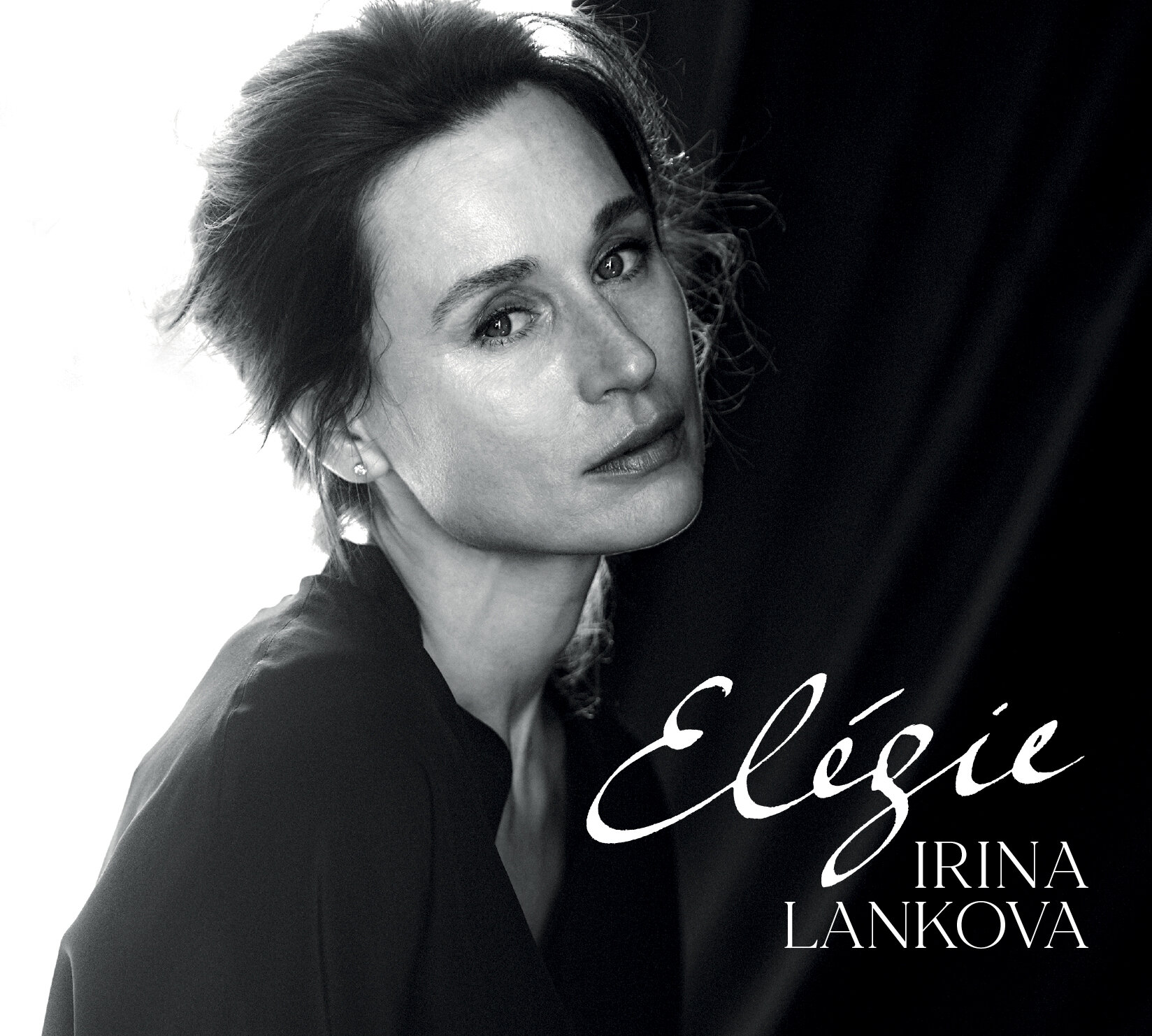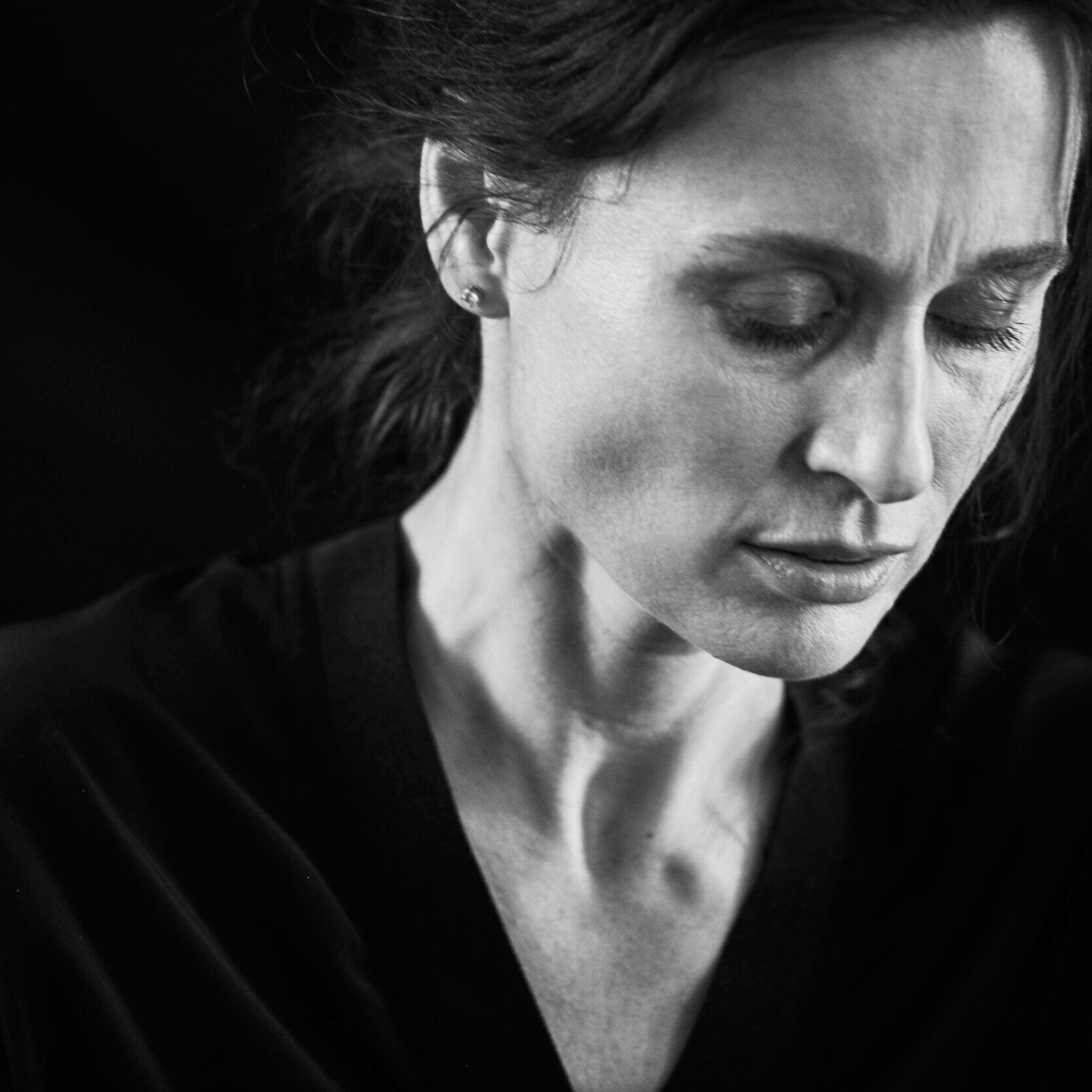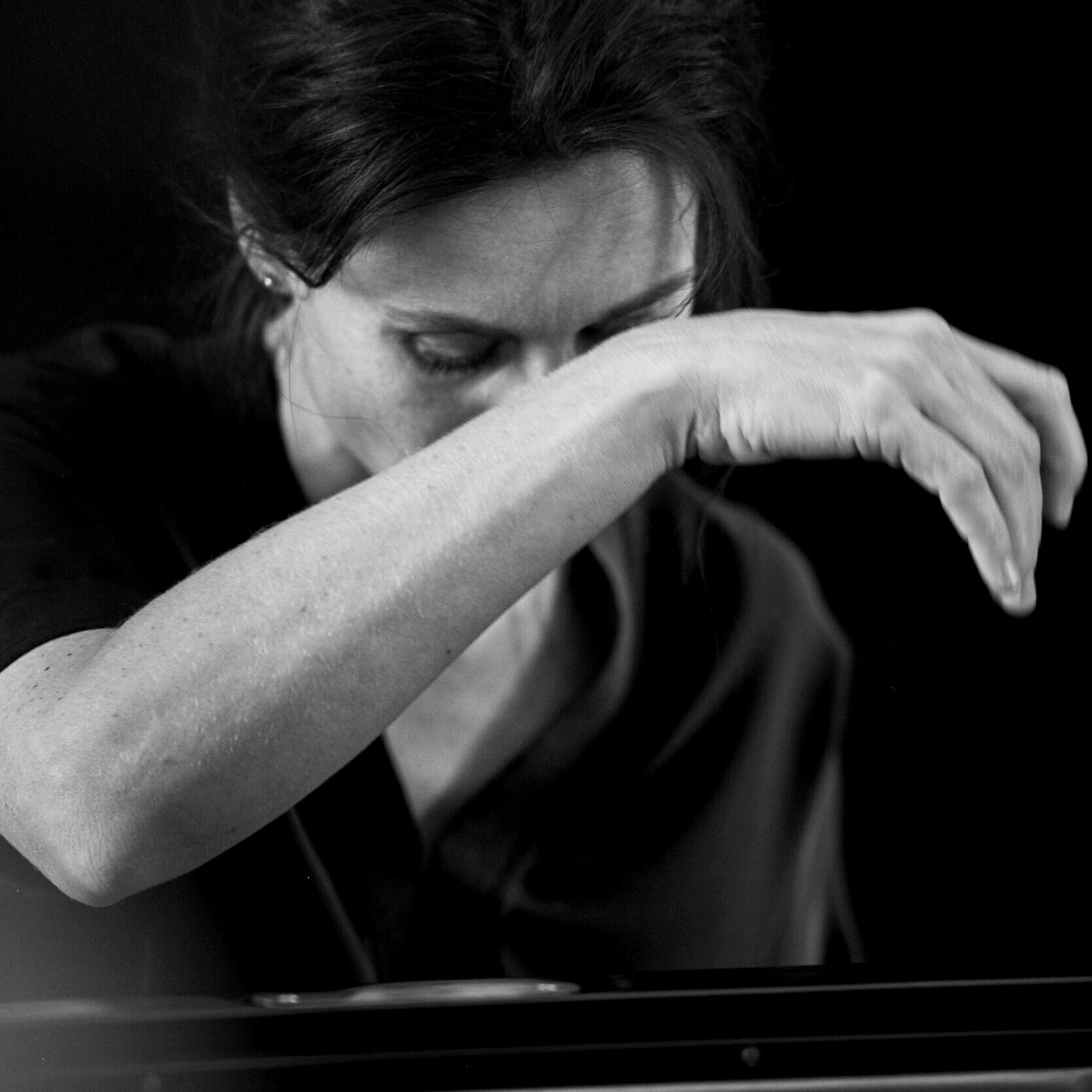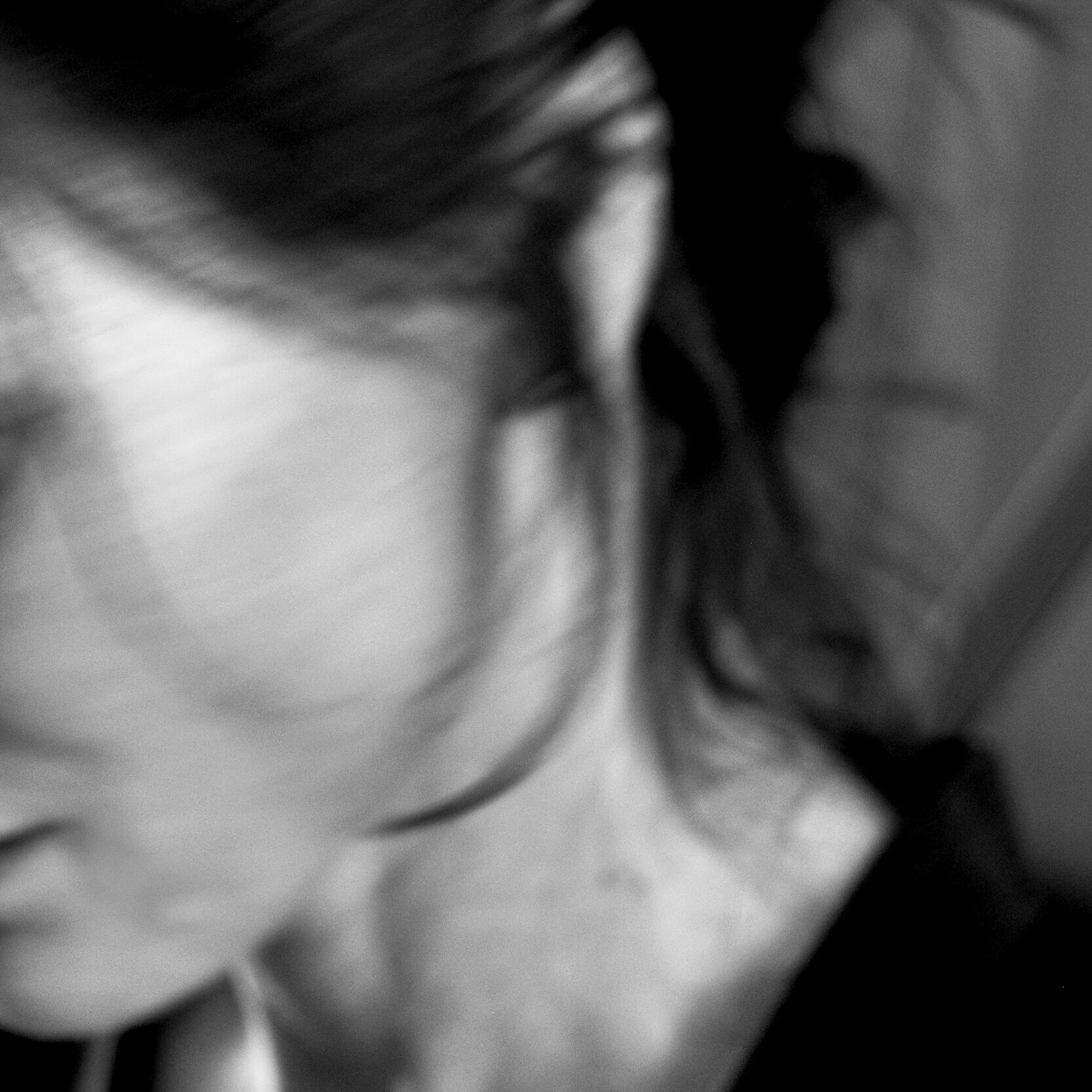Elégie - Recital Programme
Elégie is a very personal selection of short and particularly emotional works by Rachmaninov and Schubert, which have accompanied me from my childhood in Russia to the present on the international stage. Each piece has an intimate and deep meaning and holds a special place in my artistic journey.
The photographs and the film of the first piece of the album were taken by my friend Peter Lindbergh shortly before his death. He said that he was very moved by the strength and fragility in my interpretations and wanted to make the cover for my next album. I loved his search for authenticity in his portraits and I have the impression that with all his kindness he was able to capture this duality, and something more, invisible.
Elégie album has been released on March 21, 2021 and is available on all digital platforms.
At the concert, I like to present the program to the audience with brief personal comments and historical facts.
S.Rachmaninov
Elegy Op.3 No.1
Etude-Tableaux Op.39 No.3 & Op.33 No.8
Préludes Op.32 No.12 & Op.23 No.7
S.Rachmaninov transcriptions
Vocalise Op.34 No.14 / Z.Kocsis
Zdes horosho Op.21 No.7 / I.Lankova
Liebesleid by F.Kreisler
F.Schubert
Impromptu No.3 Op. 90, D.899
Ständchen D.957, transcription F.Liszt
Auf dem wasser zu singen D.774, transcription F.Liszt
Depending on the length of the concert, some pieces can be replaced or added :
S.Rachmaninov Sonata No.2 Op.36 (version 1931) or A.Scriabin Sonata No.2 Op.19
Press Review :
“Musical muse of photographer Peter Lindbergh, Russian pianist Irina Lankova delivers her most personal album, punctuating "Élégie" with pieces by Rachmaninoff, Schubert and Bach which have changed her life..”
L’Echo, Xavier Flament“Beyond the virtuosity required by Rachmaninoff's repertoire, there is this urgency, this romantic drama that weaves itself at the end of each melodic phrase. This dramatic power, this art of magnifying the sadness so characteristic of Russian culture, Irina Lankova serves it to us with no filter other than that of her soul”
Audiophile Magazine, Joel Chevassus“Remarkably solemn, very distinguished approach in Rachmaninov”
“…her expressive playing, the sparkling way in which she conducts the conversation between voices, and the dynamic structure of Schubert are simply magnificent.
“Bach’s dignified rigor and Lankova's straightforward, unadorned and above all honest style fit together wonderfully”
Klassiek-centraal
Elégie on tour :
10/06/2021 Château Saint-Anne, Belgium
09/08/2021 Michelangeli festival, Italie
04/09/2021 Musicales du Luberon, France
15/09/2021 Salle Gaveau Paris, France
2/12/2021 La Patinoire Royale, Brussels
08/05/2022 Salle Cortot Paris, France
13/05/2022 Carnegie Hall NY, United States
13/10/2022 Concertgebouw Amsterdam, Netherlands
28/11/2022 l’Esprit du piano Festival Bordeaux, France
Elégie for public or private concert engagements: contact@irinalankova.com
Elégie / an emotional journey
Oxford dictionary defines the elegy as a
‘little lyric poem most often tender and sad’.
But its poetry, more ample and intense,
draws its power from its ancient roots: elegeia,
the "song of death" of the Greeks,
resounds even today in the complaint, the pain,
the separation, the surges of love...
In classical music, the elegy designates a short piece
open to infinite degrees of deep emotion,
which exclude neither joy nor delight.
Originally there is still a wound that lights up musical emotion.
I imagined this album as an emotional journey. Each of the tracks then stood out as poignant, echoing an important moment in my life.
I first heard Rachmaninov's Elegy when I was six or seven; it went straight to my heart! I was overwhelmed: it opened the doors to another world, more intense and free, which corresponded to what I felt intuitively within me. This music, far from sounding sad to me, was so powerful and vibrant!
Rachmaninov was not afraid or ashamed of expressing his emotions in music without restraint, but also with his particular elegance, sobriety and dignity. Realising it, feeling it so deeply from early stages undoubtedly shaped me. He also expressed, like no one else, the nostalgia of the Russian soul, which Andrei Tarkovsky describes in his film Nostalghia as a ‘fatal illness’, inseparable from the extreme suffering that deprives us of our place of birth or of our intimate landmarks...
I tried to learn Etude-tableau Op.39 No.3 as a child, crying with frustration, as it was so difficult. I was obviously too young, but I wanted to surpass myself, drawn into this direction that Rachmaninov inspired.
My choices are also quite intuitive. Vocalise is a piece that haunts me because I always have the feeling that it escapes me. It is beyond control ... Maybe I have to accept it, because this music should not be tamed? Very intellectual in its structure and at the same time so natural in its expressions, it flows like a torrent from a source: ‘Music comes from the heart and speaks only to the heart,’ he said,-‘it is love.’
Zdes horosho is difficult to translate; it is a romance that I transcribed for piano and whose title evokes the feeling of wellbeing that one experiences alone in the heart of nature and which is close to a dream. When the word dream is pronounced, the piece breaks apart: we’re struck then by the nostalgia of the inaccessible.
It's this ‘sehnsuch’, longing that we find in Schubert as well, this same split that attracts me to his music. Schubert wanted to give us a better world, a moment of consolation. This is what Rachmaninov's music gave me and that’s what brings me closer to Schubert. For a long time, I was intimidated by his delicacy and sensitivity, which I felt deeply and that I love to interpret today.
L’Étude-Tableau Op.39 No.6 evokes danger: it expresses it as much as it puts the pianist in danger. I love this intensity that suddenly grabs the heart and the conscience.
Dostoevsky described the ‘Russian Soul’ as the ‘spirituality of a nation for whom suffering is the fundamental need’. How can we bear our
Auf dem Wasser zu singen is a lied that describes death as a rising into the light, despite the sadness that accompanies it: ‘One day I will disappear into a radiant wave’. The music ascends to joy, with the depth and spirituality of the elegy. Schubert expresses here with the same organic simplicity and naturalness as in the melody of his famous Ständchen.
Finishing this album with Johann Sebastian Bach was essential for me. His music, constructed with great precision, arises from a genuine and evident spirituality.
The Bach/Marcello Adagio is timeless. A Venetian composer Alessandro Marcello wrote this magnificent theme for his oboe concerto and I perform here the keyboard transcription made by Johann Sebastian Bach in 1717. I learned this piece for the first time when I was a student in Moscow. I couldn't find the right tempo. I had to capture the inner pulsation of the music. I looked out the twelfth floor window and saw only the white sky; it was snowing. But the snow was falling with perfect speed! I played with the tempo of the snow.
I love that this emotional journey ends in the solace with this last piece, like an opening to infinity...





